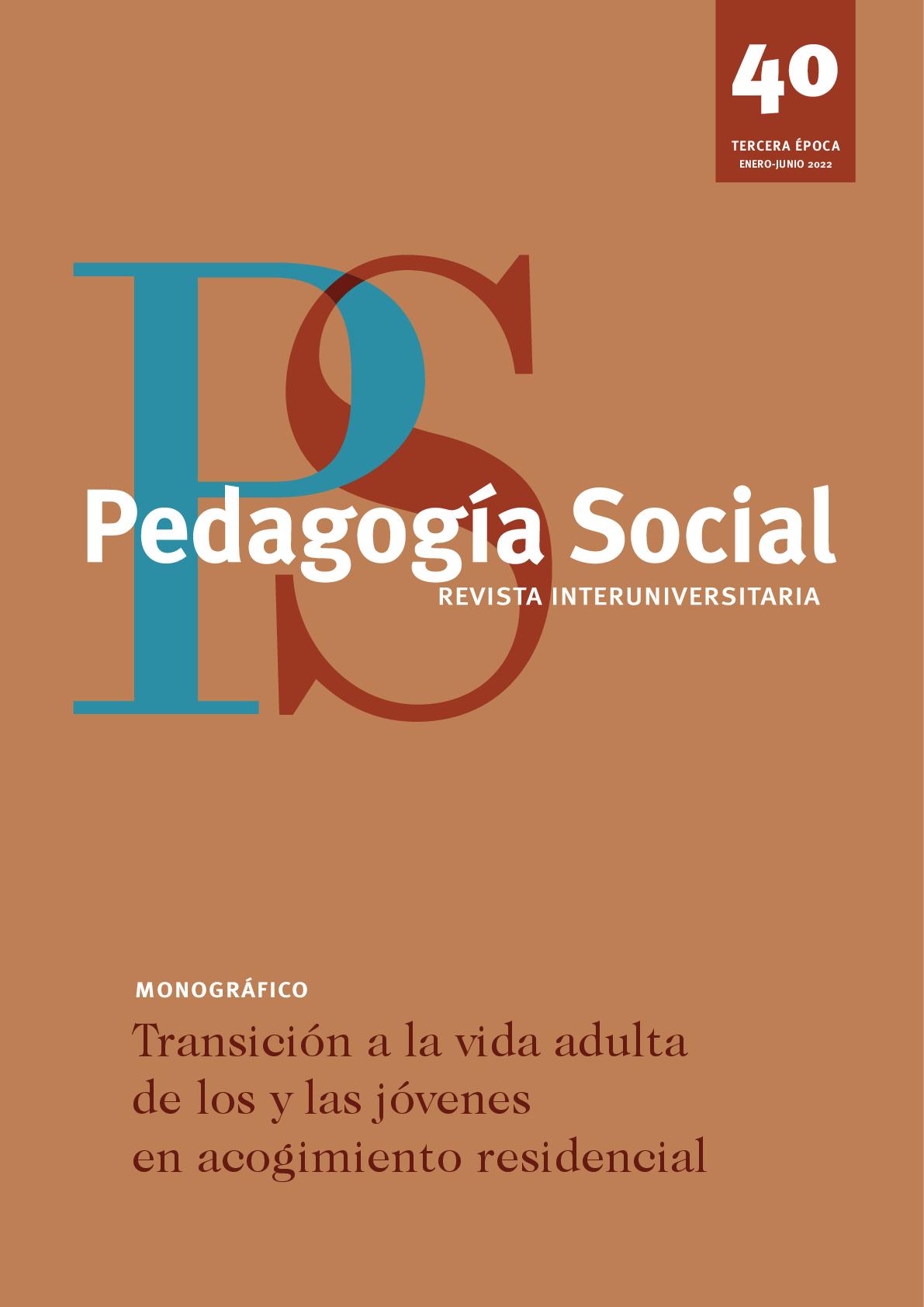Assessing socio-educational actions for young people in care transitioning programes to adult life
DOI:
https://doi.org/10.7179/PSRI_2022.40.02Keywords:
Assessment, care system, intervention, life skills training, project, social education, youthAbstract
There is a sizeable corpus of research on the difficulties experienced by young people in care as they transition to adult life. This provides a robust scientific basis for the design and implementation of policies and programs supporting this process. Assessment capacities have increased significantly, with more detailed profiles of youths in care and better evaluations of the programs and projects being carried out. This study evaluates the training methods that are being developed by socio-educational action programs and projects. We adopted a participative and systematic approach using quantitative, exploratory, descriptive, and correlational methodology. The study included young people in residential facilities, young people living independently, and their reference educators. Three instruments were used: the EVAP test battery (Assessment of Personal Autonomy) to analyze basic sociodemographic data, dimensions having to do with the home life and situation of youths in state care, and their abilities and expectations; EDATVA (Transition to Adulthood Autonomy Scale for Young People); and the the Ryff Scale for Psychological Well-Being. The sample included 99 reference educators in addition to 384 young people aged 17 to 23 (100 with residential support and 284 living independently). Results show that projects focusing on the transition to adulthood, and on life and relationship skills, have been successful in helping young people enter the adult world feeling satisfied with their lives. At the same time, the dimensions involving family relationships and household management will require targeted attention if these projects are to be more effective.
Downloads
Downloads
Published
How to Cite
Issue
Section
License
Copyright (c) 2022 Pedagogía Social. Revista Interuniversitaria

This work is licensed under a Creative Commons Attribution-NonCommercial-ShareAlike 4.0 International License.
Copyright and right to archive
The published version of the articles can be self-archived by their authors in open access institutional and thematic repositories. However, Pedagogía Social. Revista Interuniversitaria must authorize partial or global reutilisation on new papers or publications.
Published papers must be cited including the title of the journal Pedagogía Social. Revista Interuniversitaria, issue, pages and year of publication
Ethical responsibilities
Pedagogía Social. Revista Interuniversitaria does not accept any material that has been previously published in other documents or publications. Authors are responsible for obtaining the required permissions for partial or global reproduction any material from other publications, and to correctly quote its origin.
Pedagogía Social. Revista Interuniversitaria is obliged to detect and report fraudulent practices.
Only those who have intellectually contribute to the development of the paper must appear as authors.
The journal expects authors to declare any commercial partnership that might entail a conflict of interest with respect to the submitted article.
Authors must mention in the article, preferably in the “methodology” section, that the procedures used during the samplings and controls have been made after getting informed consent.
The journal will not use any received contribution in a way other than the goals described in these guidelines.
Copyright Notice
© Pedagogía Social. Revista Interuniversitaria. Papers published in both the printed and online versions of this Journal are property of Pedagogia Social. Revista Interuniversitaria, being required to cite the source in any partial or total reproduction.
Unless otherwise stated, all content of this electronic journal is distributed under "Creative Commons Attribution-Non commercial 3.0 Spain" (CC-by-nc) license for use and distribution. The informative version and the legal text of this license is available here. This has to be expressly stated in this way when necessary.






